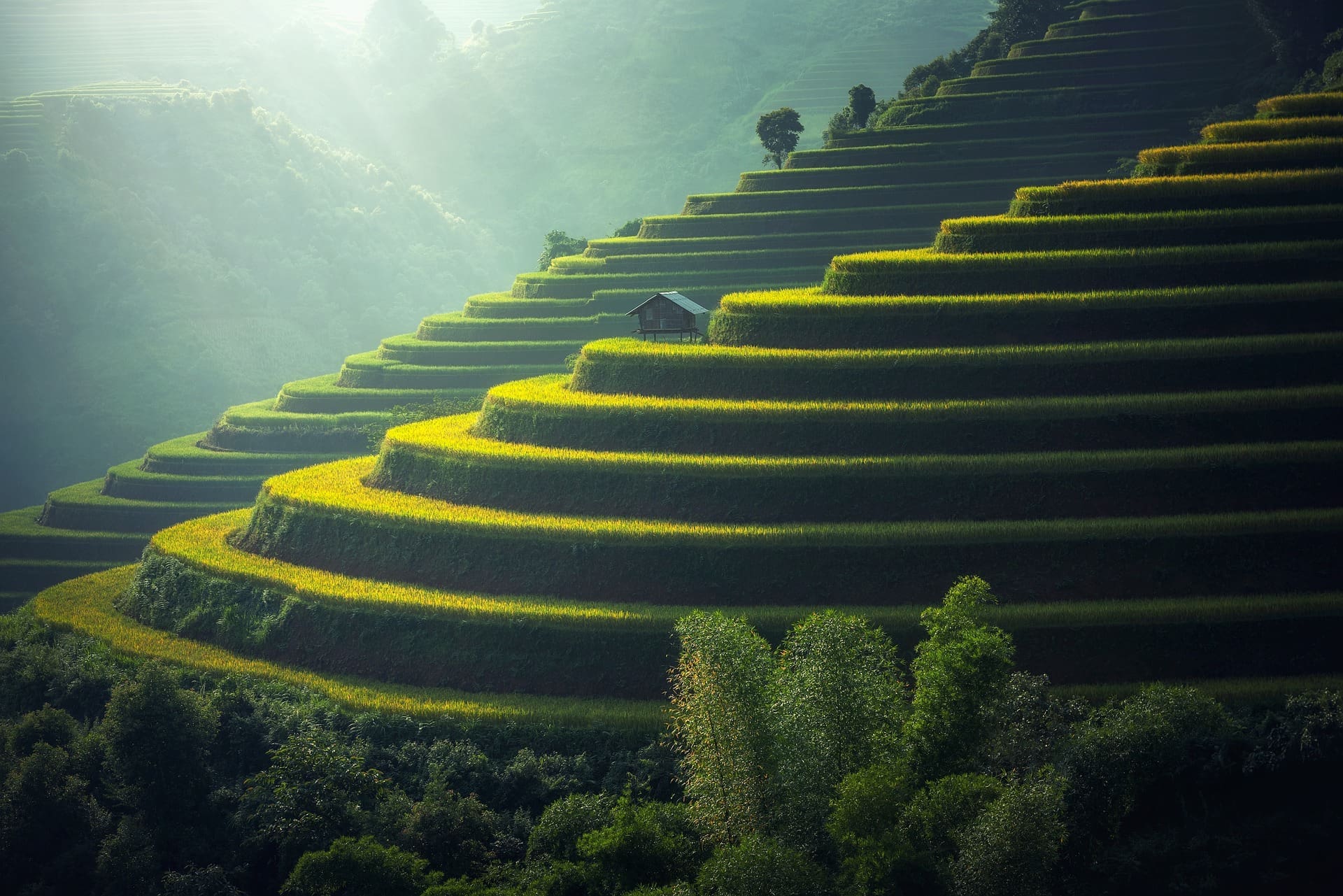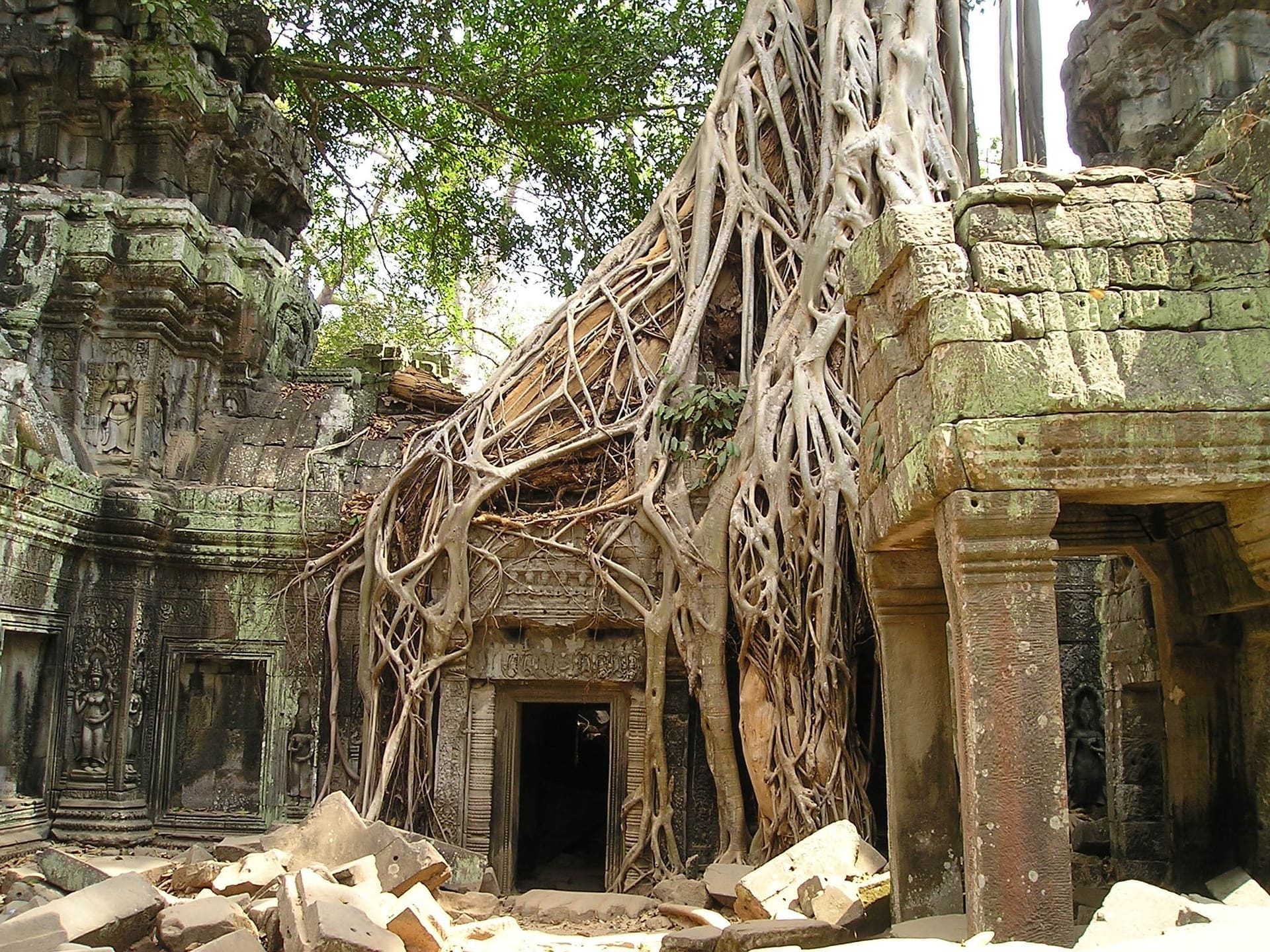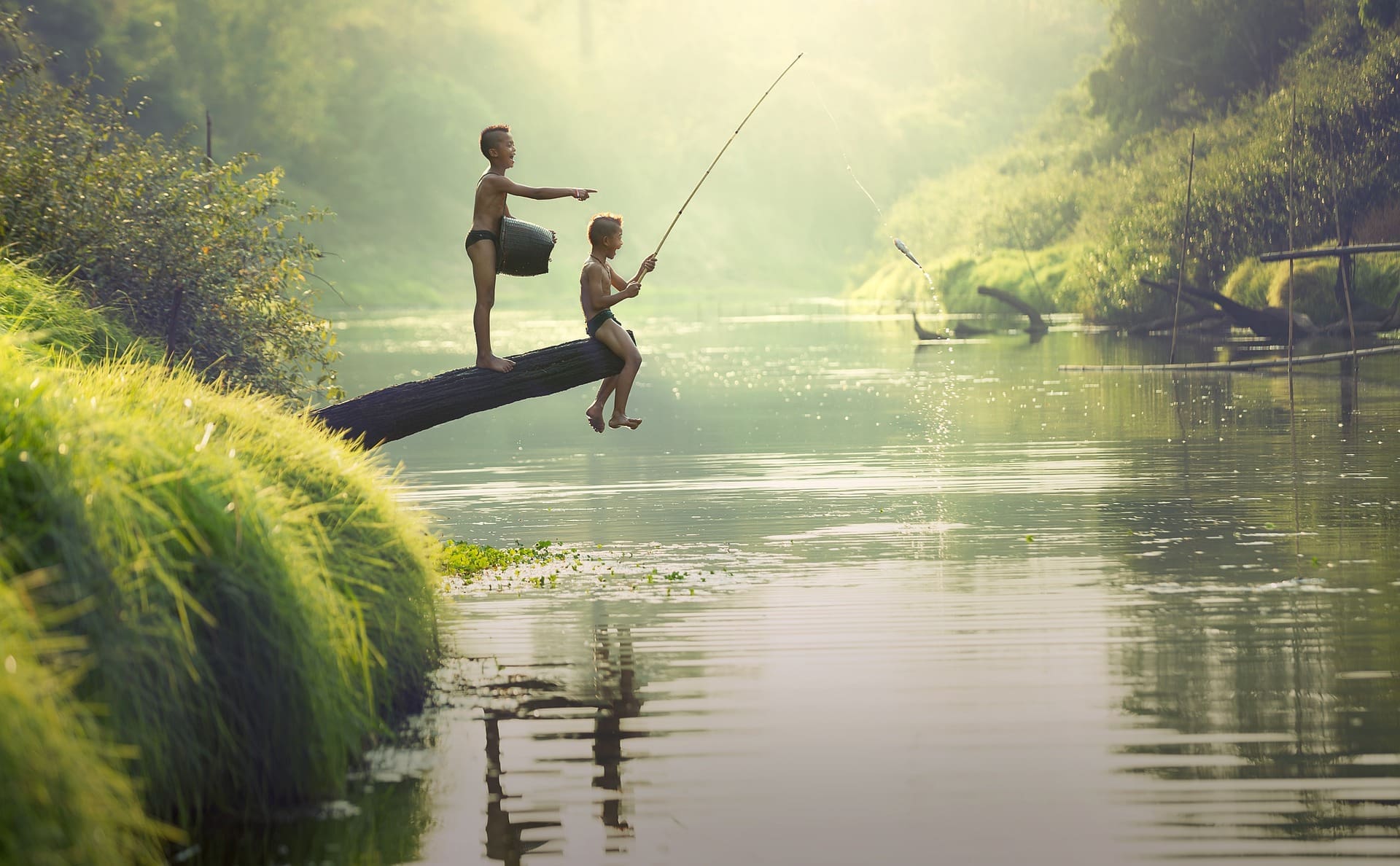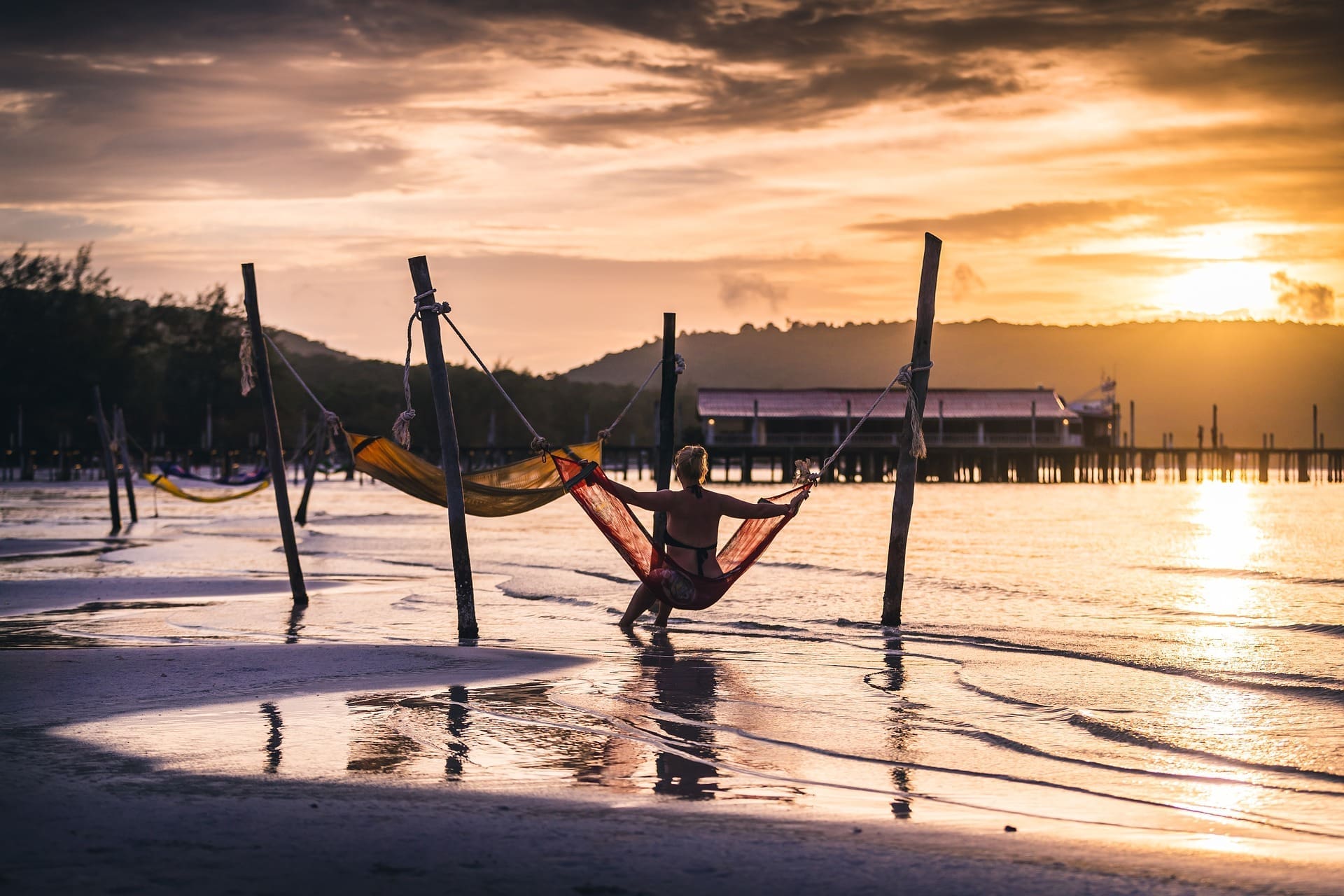Cambodia
rich culture, stunning temples, vibrant
About Cambodia
Culture and Religion
Where to go
How to get there
Visa Requirements
Travelling Budget
About Cambodia
Cambodia, located in Southeast Asia, is a country rich in history, beauty, and cultural heritage. Known for the magnificent Angkor Wat temple complex, Cambodia attracts countless visitors who are captivated by its ancient ruins and architectural wonders.
Beyond Angkor Wat, this captivating country offers a diverse range of attractions. Pristine beaches, such as those found in Sihanoukville and Koh Rong, provide opportunities for relaxation and water activities. The coastal region also boasts delicious seafood cuisine, with fresh catches of fish and crab being a highlight.
Cambodia’s tragic history under the Khmer Rouge regime is also an indelible part of its story. Visitors often pay their respects at the Killing Fields and the Tuol Sleng Genocide Museum in Phnom Penh, gaining insights into the country’s past while honoring the victims.
While the scars of the past still linger, Cambodia has shown inspiring resilience and progress. Its people are known for their warmth, hospitality, and genuine kindness. The rural countryside, with its lush landscapes dotted by rice paddies and traditional villages, transports visitors into a simpler, traditional way of life that is deeply connected to nature.
Cambodia is also home to a vibrant arts scene, with traditional music, dance, and crafts still thriving. From the bustling markets to the lively festivals celebrated throughout the year, there is always a colorful whirlwind of activity to experience.
In conclusion, Cambodia is a country that offers a unique blend of history, beauty, resilience, and warm hospitality. Whether exploring ancient temples, lounging on stunning beaches, or immersing oneself in the vibrant culture, Cambodia leaves a lasting impression on all who visit.
Culture and Religion
Culture and religion are integral aspects of Cambodia’s identity, shaping its traditions, art, architecture, and daily way of life. The country’s predominant religion is Theravada Buddhism, which influences nearly every aspect of Cambodian culture.
Buddhist temples, or pagodas, form the core of Cambodia’s architectural landscape. The most renowned among them is Angkor Wat, a UNESCO World Heritage Site and a symbol of national pride. These temples are not only magnificent structures but also important spiritual sanctuaries where Buddhists gather to pray, meditate, and connect with their beliefs.
Throughout the year, Cambodia celebrates numerous religious festivals and ceremonies. The most notable is Pchum Ben, a 15-day festival honoring ancestors when Cambodians visit pagodas to make offerings and pay their respects to their deceased relatives. The water festival, or Bon Om Touk, held in November, is another significant event featuring boat races and vibrant cultural performances.
Beyond Buddhism, traditional Cambodian practices also embrace animism and ancestral worship. Many Cambodians believe in spirits inhabiting natural objects or places and pay homage to their ancestors through rituals and offerings.
Cambodian culture extends beyond religious practices to its renowned performing arts. Classical dance, such as the elegant Apsara dance, combines precise movements with intricate costumes and tells stories from ancient mythology. Traditional music, featuring instruments like the khloy (bamboo flute) and the chapey (two-stringed guitar), is also central to Cambodia’s cultural heritage.
In recent years, Cambodia’s cultural revival has been gaining momentum, with efforts to preserve traditional arts and crafts. Artisans create beautiful handwoven silk garments, intricate wood carvings, and delicate silverwork, ensuring that Cambodia’s cultural legacy continues to thrive.
Culture and religion in Cambodia are deeply intertwined, creating a rich tapestry that defines the country’s identity. These traditions, beliefs, and artistic expressions provide insight into both the past and present of this fascinating nation.
Where to go

Angkor Wat
The iconic Angkor Wat temple complex is a must-visit attraction in Cambodia. It is the largest religious monument in the world and showcases stunning Khmer architecture. Exploring the ancient temples, intricate carvings, and witnessing the sunrise or sunset over Angkor Wat is an unforgettable experience.

Phnom Penh
Cambodia’s capital city, Phnom Penh, is a blend of history and modernity. Visit the historical sites like the Royal Palace, Silver Pagoda, and the sobering Tuol Sleng Genocide Museum. Take a scenic stroll along the waterfront promenade, enjoy local street food, or immerse yourself in the vibrant markets.

Rural Life in Kampong Cham
Immerse yourself in the authentic rural life of Cambodia by visiting Kampong Cham. Experience the simplicity of village life, observe traditional farming practices, and enjoy the serene countryside landscapes. Explore the bamboo bridge, Wat Hanchey temple, or take a boat ride on the Mekong River.

Relaxing in Sihanoukville
Cambodia’s coastal city of Sihanoukville offers beautiful beaches, crystal-clear waters, and a laid-back atmosphere. Spend your days sunbathing, swimming, and enjoying fresh seafood. Nearby islands like Koh Rong and Koh Rong Samloem are also worth visiting for their pristine beaches and diving opportunities.
Note: These are just a few highlights among the many incredible experiences that Cambodia has to offer. Whether it’s ancient temples, bustling cities, coastal beauty, or rural charm, Cambodia has something to cater to every traveler’s interests.
How to get there
Getting to Cambodia is relatively accessible, with several options available depending on your location and preferences.
For international travelers, the most common way to reach Cambodia is by air. The country’s main international airport, Phnom Penh International Airport, and Siem Reap International Airport are well-connected to major cities in Asia and beyond. Airlines such as Cambodia Angkor Air and several international carriers offer flights to these airports. Once you arrive, you can easily travel to other parts of the country by domestic flights or ground transportation.
If you prefer overland travel, Cambodia shares borders with Thailand, Laos, and Vietnam. There are various land crossings available, but the most popular routes are the Aranyaprathet-Poipet border between Thailand and Cambodia, and the Moc Bai-Bavet border between Vietnam and Cambodia. Bus services regularly operate between these borders, offering convenient transportation options.
Cruises along the Mekong River also provide a unique and scenic way to enter Cambodia. River cruises typically embark from neighboring countries like Vietnam and Laos and sail upstream to major Cambodian cities like Phnom Penh and Siem Reap.
It’s important to check visa requirements before your trip to Cambodia. Most nationalities can obtain a visa on arrival at the airports or land borders, or apply for e-visas in advance.
Overall, reaching Cambodia is easily accomplished through a combination of air travel, land crossings, and river cruises, giving you the flexibility to choose the most suitable option for your journey.
Visa Requirements
Visa requirements for Cambodia vary depending on the nationality of the traveler. Here are some general guidelines:
Visa on Arrival: Many nationalities can obtain a visa on arrival at the airports in Phnom Penh and Siem Reap, as well as at major land border checkpoints. The visa on arrival is valid for tourism or business purposes and typically allows a stay of 30 days. It is advisable to have passport-sized photos and the required visa fee (which can be paid in US dollars) ready upon arrival.
E-Visa: The Cambodian government also offers an electronic visa (e-visa) system, which allows travelers to apply for a visa online before their arrival. The e-visa is available for citizens of eligible countries and can be applied for through the official website. It usually takes a few days for the e-visa to be processed and approved.
Visa Extensions: If travelers plan to stay in Cambodia for longer than the validity of their visa, they have the option to extend their visa at the immigration office in Phnom Penh or Siem Reap. Extensions can typically be granted for an additional 30 days.
It is essential to double-check the visa requirements and regulations before traveling to Cambodia, as they can be subject to changes. It is also advisable to have a valid passport with at least six months of remaining validity from the date of entry.
For the most accurate and up-to-date information, it is recommended to consult with the nearest Cambodian embassy or consulate in your country or check with reputable travel agencies that specialize in visa services.

![Cambodia 1x [Phnom penh]](https://travelhd.nu/wp-content/uploads/2023/08/Cambodia-1x-Phnom-penh--scaled.jpg)
Travelling Budget
Cambodia is generally a budget-friendly destination, offering a range of options to suit different budgets. Here are some considerations for your traveling budget in Cambodia:
Accommodation: Cambodia has a wide range of accommodation options available, ranging from budget guesthouses to luxury resorts. Budget travelers can find clean and comfortable guesthouses or hostels for as low as $10-20 per night, while mid-range hotels typically cost around $30-60 per night. Luxury hotels and resorts can cost upwards of $100 per night.
Food: Cambodian cuisine is diverse and affordable. Local street food stalls and markets offer delicious and inexpensive meals for as little as $1-2. In restaurants, a typical meal will cost around $5-10, depending on the location and type of establishment. Western-style restaurants and upscale dining will naturally be more expensive.
Transportation: Public transportation in Cambodia is reasonably priced. Tuk-tuks, motorbike taxis, and local buses are popular modes of transportation within cities and typically cost a few dollars for short distances. Longer bus journeys between cities can range from $5-15, while domestic flights are more expensive but offer convenience for those with a larger budget.
Sightseeing and Activities: Many of Cambodia’s main attractions, such as the temples of Angkor, have entrance fees. A day pass for Angkor Wat and the surrounding temples is currently priced at $37 (as of 2021). Other attractions and activities, such as boat tours, cultural performances, and museum visits, may also have additional fees.
Overall, travelers can comfortably enjoy Cambodia on a budget of $30-50 per day, excluding the cost of transportation to and from the country. However, keep in mind that additional expenses can vary based on personal preferences, such as shopping, nightlife, and additional excursions or tours.
What makes your journey easier
Everything you need to know about what to bring to make your travels easier, more safe and fun
Be Mindfull
Gadgets
Gear
Insurance
Visa
















![Cambodia 5x [koh rong]](https://travelhd.nu/wp-content/uploads/2023/08/Cambodia-5x-koh-rong--scaled.jpg)








